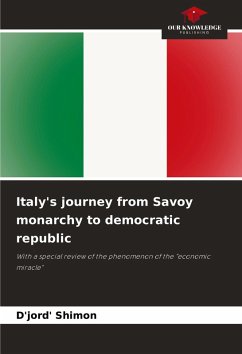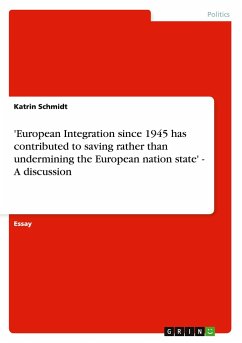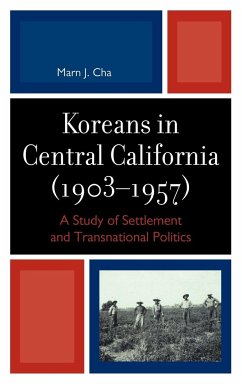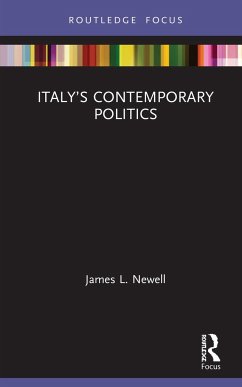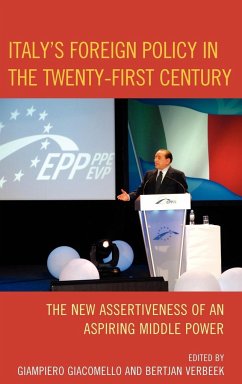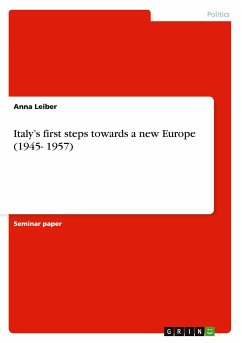
Italy's first steps towards a new Europe (1945- 1957)

PAYBACK Punkte
0 °P sammeln!
Seminar paper from the year 2014 in the subject Politics - International Politics - Topic: European Union, grade: 1,0, University of Pavia, language: English, abstract: In 2007, the European Union celebrated the 50th anniversary of the Treaties of Rome, and thus its official hour of birth after many years of intensive negotiations, which had lasted from 1945 till 1957. From the very beginning on, Italy "had been amongst the keenest supporters of the European integration, both at the popular and the government levels" (Comelli 2011: 2) and had played an important role within all early proceedin...
Seminar paper from the year 2014 in the subject Politics - International Politics - Topic: European Union, grade: 1,0, University of Pavia, language: English, abstract: In 2007, the European Union celebrated the 50th anniversary of the Treaties of Rome, and thus its official hour of birth after many years of intensive negotiations, which had lasted from 1945 till 1957. From the very beginning on, Italy "had been amongst the keenest supporters of the European integration, both at the popular and the government levels" (Comelli 2011: 2) and had played an important role within all early proceedings. Especially under the political leadership of Alcide de Gasperi, Italy became one of the most influential negotiators and until today, the country is considered a triumphant founding nation of the European Union (Di Nolfo 1980: 145). This widespread pro-European attitude, however, has declined dramatically during the last decades. This negative relationship between Italy and the European Union, however, might be recovering from now on. Matteo Renzi, who got elected the new Italian prime minister in February this year, seems willing to contribute decisive activities to move the Italian population again closer to Europe. As a first important step, Renzi used his government declaration to underline the his-torical significance of the European Union and the urgent necessity for Italy to restart European cooperation (N24.de 2014). Referring to his prominent political precursor, Alcide de Gasperi, the Italian prime minister promised to close the gap between Italy and Europe again. Picking up this recent look back to the founding period of the European Union by the Italian prime minister, this paper focuses on exactly that time and analyses Italy's contribution during the early European integration. Political scientists and historians often divide this process in three main parts: the after-war period between 1945 and 1949, the beginning of multilateral negotiations from 1949 till 1954, and finally the most important time for the European unification ending with the ratification of the Treaties of Rome in 1957 (Di Nolfo 1980: 148). In the subsequent analysis, I will follow this structure and thereby concentrate on the most decisive events that took place within the different periods - first and foremost the Brussels and Atlantic Pact (1948), the Schuman Declaration (1950), the European Defence Community (1952), the Spaak Committee (1955), and the Treaties of Rome (1957).




